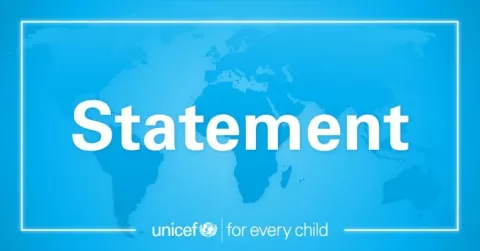In Republic of Congo, the ‘Light Women’ shine for local children
Deep in the lush forests of northern Republic of Congo, a group of highly dedicated women is helping remote communities beat malnutrition.
MBANDZA, Republic of Congo – Véronique Etima was worried. She could see something was wrong with the children in her community. They were showing some of the same symptoms that her niece had displayed before she died.
“At first, we didn’t know what had happened. But I could see that many children in our community were showing the same signs,” she says of Mbandza, a small indigenous village deep in the forests of the Likouala region in northern Republic of Congo. “So, I decided to learn. That’s when we realized that she had died from malnutrition.”

Chronic malnutrition affects about a third of children in the Likouala region. But ‘Maman Véronique’, as she is known in her village, was determined to understand what was happening and to change the fortunes of Mbandza’s children. What she has learned about nutrition is not only helping to keep her own baby healthy but has allowed her to share potentially life-saving advice with other families, too.

Mbandza, Maman Véronique’s village in northern Congo, is surrounded by lush forests about 1,300 kilometres north of Brazzaville. It’s a more than two-day journey from the capital – along bumpy roads and across rivers – to what is one of the most remote parts of the Republic of Congo.

Maman Véronique cradles her 13-month-old son, Isidore, as she attends a malnutrition screening. After losing her niece she was determined to do whatever was necessary to ensure that parents in her community never have to experience the pain of losing a child to malnutrition.
She says she heard about Association de Lutte Contre la Malnutrition (ALCM), a community-based organization founded in 2007, and quickly became an active member of its Femmes Lumières (‘Light Women’), a group of women trained to help tackle malnutrition among children.

Indigenous communities in the Republic of Congo depend on eating whatever they can gather from hunting, fishing or in the forests; this has left many with a limited diet. But Maman Véronique says most of the food she prepares for her family now comes from crops she has harvested, in fields she accesses by walking through a forest.

Maman Véronique is harvesting some of the food she is growing. The food now being grown, or which is available locally, including wild spinach, cassava, melons, peanuts, soybeans and yams, is being used to complement ingredients gathered from traditional hunting and fishing.

The additional ingredients allow Maman Véronique and others to cook more well-rounded meals for their families.
“I’ve learned that there are different categories of food that, when mixed, can help protect and provide strength and energy for children,” she says.

Maman Véronique sits with her son and two children she looks after as they have something to eat. She is happy her son is healthy, but also excited that she has been able to help other children in the community.

Maman Véronique leads cooking classes for parents to help them learn how to prepare healthy meals with what is available in the market. Malnutrition rates are particularly high among the vulnerable indigenous population clustered in the area, where communities have little access to even basic health services and information, including about nutrition.

Representatives of Femmes Lumières also lead activities to raise awareness about malnutrition in the nearby town of Bétou. Maman Véronique, holding up a poster, says what she has learnt has been invaluable – and now also helps to lead some of the classes.
“I learned that exclusively breastfeeding until six months of age is the best thing a mother can do for her infant. I also learned how hygiene and sanitation are critical to tackling malnutrition,” she says.

Representatives of Femmes Lumières demonstrate how to prepare a healthy meal. The ALCM conducts a range of activities, including sharing information on hygiene and sanitation, providing mobile clinics to bring nutrition and health interventions, including vaccinations, closer to isolated populations. The organization also delivers community-led agriculture initiatives to help diversify food production and generate income, including using a mill provided by UNICEF to process soybeans.

The cooking demonstrations aren’t just aimed at adults – children also take part, assisted by Femmes Lumières representatives.
“Little by little, things are changing,” says, says Maman Véronique, emphasizing that these initiatives are helping keep children in the community healthier. “We see less and less children with signs of malnutrition.”
“There’s still work to do, but people in my community understand and accept that we need to change practices for our children so they can have a better future.”
Read about the changing face of malnutrition.



